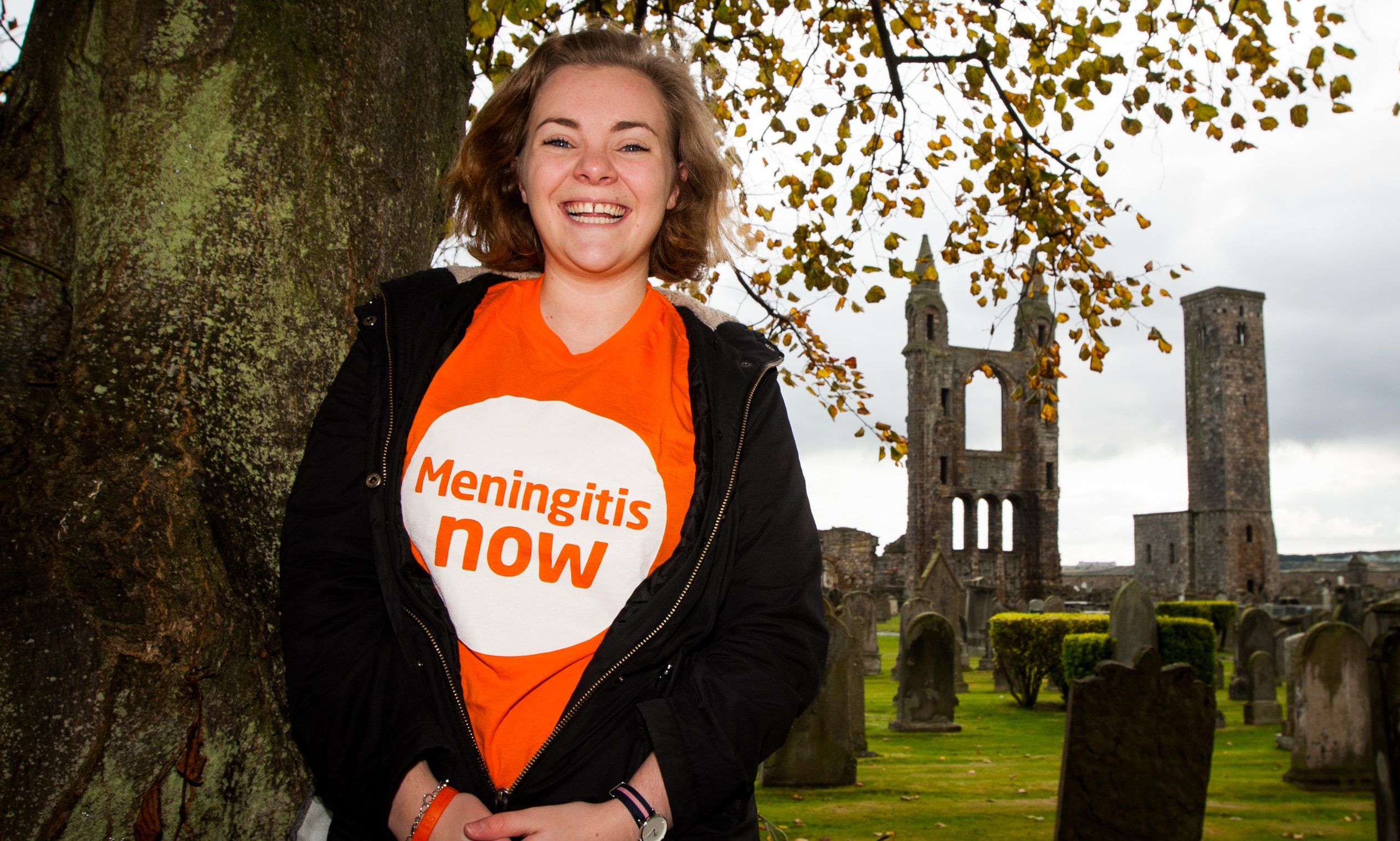A St Andrews student has recalled just how close she came to death, as it emerged there have been two cases of meningitis at the university.
Not that fourth year student Fiona Yelland, a survival of bacterial meningitis, needs any reminder.
She has dedicated her energy and time to warn others about the potentially deadly disease since she came perilously close to losing her own life five years ago.
The Edinburgh student, as a young ambassador for leading charity Meningitis Now, was among the first students to be informed of the St Andrews outbreak and is working closely with the university to provide information for concerned students, staff and parents.
She urges her fellow students to get to know the signs of the disease, and to get immunised with the MenACWY vaccine.
For Fiona, her brush with the disease was down to a tooth.
And were it not for the quick thinking and niggling doubt of her school matron, she doesn’t know if she would be here today.
In a very matter of fact way, she describes the terrifying grip meningitis had not only on her, but her entire family.
What is more shocking is the speed with which the killer disease crept up on her.
“I was doing my Highers, so in fifth year, and it struck incredibly fast.
“I was heading into school with my mum at 8am but by 12pm I was on a life support machine,” she said.
For Fiona, there was no tell-tale rash.
Instead there was a sensation of pins and needles in her feet, which moved on to symptoms akin to a stroke.
Rushed to hospital by ambulance, no-one quite knew the diagnosis.
It wasn’t until a week later the mystery was solved — a missing tooth which she’d knocked out some years earlier.
She’d had root canal treatment and there had been abscesses but nothing too severe — yet it was bacteria associated with the tooth which had caused meningitis.
She describes herself as “incredibly lucky” in that she made a full recovery, and has since fund-raised — along with her mum — with the total now around the £7,000 mark.
And she is grateful too for the matron, who called an ambulance rather than putting it down to a migraine, giving her paracetamol and telling her to lie down.
“If I’d done that I wouldn’t have woken up, she said.
Thankfully, she recalls little of the time in hospital, including the painful lumbar puncture, and being so confused she didn’t know her own birthday.
“Now I want to tell everyone it takes five minutes to learn the signs and that could save a life,” she explained.
And she urged youngsters to get the vaccine.
“If my talking about it means a few people read this and become more aware, that is great,” Fiona added.





